 Last Tuesday, I was able to attend the Joint Committee on Education's hearing in Boston. I say "able" because, while I am sure the legislation before the Committee would have garnered interest and testimony from many active educators, they largely would not have been able to attend as the hearing took place the day after Labor Day, a school day. As a teacher retiree, I was not in my first (or fourth) day of a new school year and could attend, so I did.There were many proposed pieces of legislation under discussion last Tuesday; however, two bills, S.279 and H.304, aroused my curiosity and alarm. These two pieces of legislation appear to target teachers and students in gateway cities and, if you are a Massachusetts parent, teacher, or administrator and your student attends school in one of these districts, you should pay attention. Your voice in what happens in your local school is being threatened.Bill, S. 279 unnecessarily singles out and targets urban and gateway districts. How do I know this? Because the "opportunity" to become an innovation partnership zone is based on a the results of a single high-stakes test, the MCAS and consequently the assigned school level that stems from that test. To base the worth or value of a school - or a district - on how students perform on a single high-stakes exam is w.r.o.n.g. It is bad educational practice. No teacher would ever give a student a final mark based on one measure and the Commonwealth shouldn't be doing this with schools and school districts either.Those who favored moving H.304 and S.279 forward spoke frequently about the power of looking at students' (test) results and collaborating to determine school budget priorities, schedule/time allocations, and coordination of student needs with curriculum. My reaction to that is NO KIDDING. Why, why, why, do some in the Commonwealth feel that a piece of Legislation would make this a) any different from current practice, or b) necessary to mandate?Those in favor also spoke about the empowerment zone created in Springfield. The Springfield schools working in the empowerment zone are all middle schools and have done so for two years. Even James Peyser, Secretary of Education, had to admit the "data" on the success of these schools was rather green and not established. Others from this panel (two teachers and a principal) spoke about their experience meeting as teacher teams to think about what the students need.Sorry kids this is not a new concept or practice, nor is it one that requires a mandate from the Commonwealth. Lowell teachers, and I suspect teachers in most districts throughout Massachusetts, routinely meet to do this very same thing regularly. We call these collaborations PLCs (professional learning communities) or CPTs (common planning time). We do these things because a) we are there to figure out how to help students go from learning point A to B and b) we are professionals.Here's another thought: if a school is considered lower performing according to MCAS results, H.304 and S.279 would allow the Commissioner of Education (appointed, not elected) to begin the process of designating the schools for empowerment or innovation zone status. In the case of H.304, if the local teachers' union and the school committee cannot agree to concessions to the collective bargaining agreement, the Commissioner can just make the school a lower Level 4, and in effect, start the process of diluting local control anyway.Under S.279, the legislations proposes to "support" struggling schools through the creation of an innovation partnership zone. From what I can tell, the "partnership" is that the Commissioner of Education and DESE has a large stake in how the school is run. Schools are eligible to be in an innovation zone if their MCAS scores put them in Level 4 or Level 5 status. But - and this is key - in order to create an innovation zone, there needs to be at least 2 schools participating.Just to put that into local perspective, if Lowell has a Level 4 school (and it does) and the decision was made to create an innovation partnership zone for that school, the Commissioner of Education could pair that Level 4 school with another higher performing school - a Level 3, a Level 2 or a Level 1. So don't breathe easy if your school's MCAS results are great, you too could be part of this education magic show.When a school is "in the zone" (sorry Vygotsky fans, I couldn't resist that), an appointed
Last Tuesday, I was able to attend the Joint Committee on Education's hearing in Boston. I say "able" because, while I am sure the legislation before the Committee would have garnered interest and testimony from many active educators, they largely would not have been able to attend as the hearing took place the day after Labor Day, a school day. As a teacher retiree, I was not in my first (or fourth) day of a new school year and could attend, so I did.There were many proposed pieces of legislation under discussion last Tuesday; however, two bills, S.279 and H.304, aroused my curiosity and alarm. These two pieces of legislation appear to target teachers and students in gateway cities and, if you are a Massachusetts parent, teacher, or administrator and your student attends school in one of these districts, you should pay attention. Your voice in what happens in your local school is being threatened.Bill, S. 279 unnecessarily singles out and targets urban and gateway districts. How do I know this? Because the "opportunity" to become an innovation partnership zone is based on a the results of a single high-stakes test, the MCAS and consequently the assigned school level that stems from that test. To base the worth or value of a school - or a district - on how students perform on a single high-stakes exam is w.r.o.n.g. It is bad educational practice. No teacher would ever give a student a final mark based on one measure and the Commonwealth shouldn't be doing this with schools and school districts either.Those who favored moving H.304 and S.279 forward spoke frequently about the power of looking at students' (test) results and collaborating to determine school budget priorities, schedule/time allocations, and coordination of student needs with curriculum. My reaction to that is NO KIDDING. Why, why, why, do some in the Commonwealth feel that a piece of Legislation would make this a) any different from current practice, or b) necessary to mandate?Those in favor also spoke about the empowerment zone created in Springfield. The Springfield schools working in the empowerment zone are all middle schools and have done so for two years. Even James Peyser, Secretary of Education, had to admit the "data" on the success of these schools was rather green and not established. Others from this panel (two teachers and a principal) spoke about their experience meeting as teacher teams to think about what the students need.Sorry kids this is not a new concept or practice, nor is it one that requires a mandate from the Commonwealth. Lowell teachers, and I suspect teachers in most districts throughout Massachusetts, routinely meet to do this very same thing regularly. We call these collaborations PLCs (professional learning communities) or CPTs (common planning time). We do these things because a) we are there to figure out how to help students go from learning point A to B and b) we are professionals.Here's another thought: if a school is considered lower performing according to MCAS results, H.304 and S.279 would allow the Commissioner of Education (appointed, not elected) to begin the process of designating the schools for empowerment or innovation zone status. In the case of H.304, if the local teachers' union and the school committee cannot agree to concessions to the collective bargaining agreement, the Commissioner can just make the school a lower Level 4, and in effect, start the process of diluting local control anyway.Under S.279, the legislations proposes to "support" struggling schools through the creation of an innovation partnership zone. From what I can tell, the "partnership" is that the Commissioner of Education and DESE has a large stake in how the school is run. Schools are eligible to be in an innovation zone if their MCAS scores put them in Level 4 or Level 5 status. But - and this is key - in order to create an innovation zone, there needs to be at least 2 schools participating.Just to put that into local perspective, if Lowell has a Level 4 school (and it does) and the decision was made to create an innovation partnership zone for that school, the Commissioner of Education could pair that Level 4 school with another higher performing school - a Level 3, a Level 2 or a Level 1. So don't breathe easy if your school's MCAS results are great, you too could be part of this education magic show.When a school is "in the zone" (sorry Vygotsky fans, I couldn't resist that), an appointed 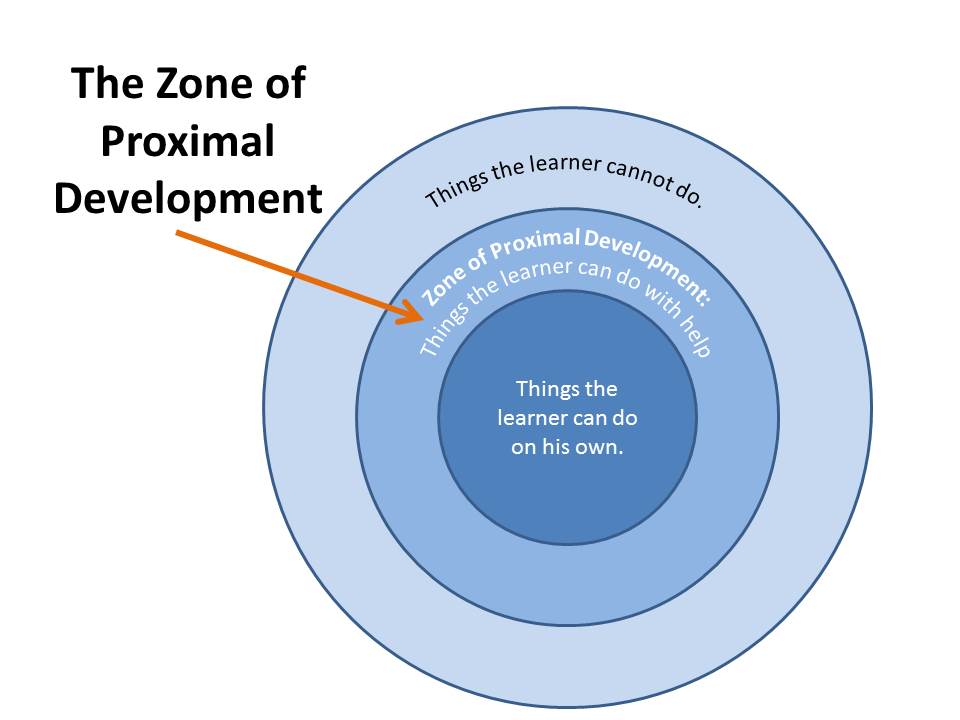 Board of Directors has autonomous control over personnel, budget, curriculum and hours. This unelected board with possibly no connection to the community could decide to do anything, including conversion of the public school to a charter school through a charter management company.Just for comparison, if a school is not in the zone, the elected School Committee and a combination of school administration/school site councils (theoretically) make these decisions and if you, a parent or voter, don't agree with those decisions, you can voice that in person or you can make your feelings known at the ballot box.Wait. Who is missing from those groups? If you said "teachers", you go right to the bullseye of the Zone of Proximal Development. At least on this topic. Despite the Springfield testimony highlighting empowering teachers and teacher teams, the decision-making for what takes place in a classroom is still top-down.The act of creating empowerment or innovation zones is different from what has happened in a few districts in Massachusetts, namely Lawrence. In those districts the state has outright put the entire district into receivership, meaning, the local governance of the public schools is given over to the Commonwealth. There is no local control over the education of the students and an un-elected "receiver" makes all the decisions. It also includes a favorable environment for education management organizations (EMO) to set up a network of charter schools. If you are interested in the track record of the charter school industry in Michigan and in particular Detroit where entire public school districts were replaced by charter school entities, read this article from the NY Times. Chilling.The full text of S.279 is found here, and the full text of H.304 is found here. For now, both of these bills warrant a close watch. The Department of Elementary and Secondary Education seem to be ready to dismantle traditional public education one school at a time.
Board of Directors has autonomous control over personnel, budget, curriculum and hours. This unelected board with possibly no connection to the community could decide to do anything, including conversion of the public school to a charter school through a charter management company.Just for comparison, if a school is not in the zone, the elected School Committee and a combination of school administration/school site councils (theoretically) make these decisions and if you, a parent or voter, don't agree with those decisions, you can voice that in person or you can make your feelings known at the ballot box.Wait. Who is missing from those groups? If you said "teachers", you go right to the bullseye of the Zone of Proximal Development. At least on this topic. Despite the Springfield testimony highlighting empowering teachers and teacher teams, the decision-making for what takes place in a classroom is still top-down.The act of creating empowerment or innovation zones is different from what has happened in a few districts in Massachusetts, namely Lawrence. In those districts the state has outright put the entire district into receivership, meaning, the local governance of the public schools is given over to the Commonwealth. There is no local control over the education of the students and an un-elected "receiver" makes all the decisions. It also includes a favorable environment for education management organizations (EMO) to set up a network of charter schools. If you are interested in the track record of the charter school industry in Michigan and in particular Detroit where entire public school districts were replaced by charter school entities, read this article from the NY Times. Chilling.The full text of S.279 is found here, and the full text of H.304 is found here. For now, both of these bills warrant a close watch. The Department of Elementary and Secondary Education seem to be ready to dismantle traditional public education one school at a time.
 Say what you will about living in these political times, snaps go to the marketeers coming up with the names. Why if you didn't actually spend a large portion of your reading time being skeptical and following up with questions and queries, you might just miss out on some really fun oxymorons.Let's take the group, Families for Excellent Schools as an example. Or Students First. Or Great Schools or Building Excellent Schools.Is there a single person on the planet who is NOT for excellent schools or excellent opportunities for students and children?Families for Excellent Schools Advocacy (FESA), a close cousin of Families for Excellent Schools, recently was fined more than $450K and banned from campaigning in Massachusetts for 4 years. Why? Because in an effort to win over a ballot question that would expand charter school networks unnecessarily, the FESA group attempted to hide large donors, including Paul Sagan (Chairman of the Massachusetts Board of Elementary and Secondary Education in 2015) from campaign finance reporting. Not cool, FESA. Not cool Mr. Sagan. Link to Maurice Cunningham's piece on this published on the WGBH website here.What these names, knee-deep in oxymoronic descriptors, demonstrates to me is the never-ending need to question and check on "advocacy" groups for their true mission and purpose. Marketers are expert manipulators of vocabulary. They know which word combinations may cause unsuspecting audiences to be lulled into endorsement of groups which may, or may not, be supportive of their own beliefs. Exhibit A: Democrats for Ed. Reform (DFER) which endorses expanded charter schools, rigorous high-stakes testing, and top-down school structures particularly in the areas of "accountability". Building Excellent Schools apparently believes the only way to make a school "excellent" is to partner with a charter group.It always is a good policy to learn about groups purporting to advocate, especially those involved in or attempting to be involved in public education. What you may find out can be surprising.
Say what you will about living in these political times, snaps go to the marketeers coming up with the names. Why if you didn't actually spend a large portion of your reading time being skeptical and following up with questions and queries, you might just miss out on some really fun oxymorons.Let's take the group, Families for Excellent Schools as an example. Or Students First. Or Great Schools or Building Excellent Schools.Is there a single person on the planet who is NOT for excellent schools or excellent opportunities for students and children?Families for Excellent Schools Advocacy (FESA), a close cousin of Families for Excellent Schools, recently was fined more than $450K and banned from campaigning in Massachusetts for 4 years. Why? Because in an effort to win over a ballot question that would expand charter school networks unnecessarily, the FESA group attempted to hide large donors, including Paul Sagan (Chairman of the Massachusetts Board of Elementary and Secondary Education in 2015) from campaign finance reporting. Not cool, FESA. Not cool Mr. Sagan. Link to Maurice Cunningham's piece on this published on the WGBH website here.What these names, knee-deep in oxymoronic descriptors, demonstrates to me is the never-ending need to question and check on "advocacy" groups for their true mission and purpose. Marketers are expert manipulators of vocabulary. They know which word combinations may cause unsuspecting audiences to be lulled into endorsement of groups which may, or may not, be supportive of their own beliefs. Exhibit A: Democrats for Ed. Reform (DFER) which endorses expanded charter schools, rigorous high-stakes testing, and top-down school structures particularly in the areas of "accountability". Building Excellent Schools apparently believes the only way to make a school "excellent" is to partner with a charter group.It always is a good policy to learn about groups purporting to advocate, especially those involved in or attempting to be involved in public education. What you may find out can be surprising.  When one reaches un certain âge, the realization dawns on you that the past is measured in events; the moment you meet your true love, graduation, your child's birth, a parent's death.But time is also measured by events of such great historic proportion that you can remember with clarity where you were and what you were doing. We mark time by the events of historic proportions. The events mark us with changes too.On November 22, 1963, I was in sixth grade at Huron Junior High. We had an "honors" study hall which was about anything but studying. If you can imagine it, a group of sixth grade students were allowed to sit in a classroom
When one reaches un certain âge, the realization dawns on you that the past is measured in events; the moment you meet your true love, graduation, your child's birth, a parent's death.But time is also measured by events of such great historic proportion that you can remember with clarity where you were and what you were doing. We mark time by the events of historic proportions. The events mark us with changes too.On November 22, 1963, I was in sixth grade at Huron Junior High. We had an "honors" study hall which was about anything but studying. If you can imagine it, a group of sixth grade students were allowed to sit in a classroom  Last Tuesday, I was able to attend the Joint Committee on Education's hearing in Boston. I say "able" because, while I am sure the legislation before the Committee would have garnered interest and testimony from many active educators, they largely would not have been able to attend as the hearing took place the day after Labor Day, a school day. As a teacher retiree, I was not in my first (or fourth) day of a new school year and could attend, so I did.There were many proposed pieces of legislation under discussion last Tuesday; however, two bills, S.279 and H.304, aroused my curiosity and alarm. These two pieces of legislation appear to target teachers and students in gateway cities and, if you are a Massachusetts parent, teacher, or administrator and your student attends school in one of these districts, you should pay attention. Your voice in what happens in your local school is being threatened.Bill, S. 279 unnecessarily singles out and targets urban and gateway districts. How do I know this? Because the "opportunity" to become an innovation partnership zone is based on a the results of a single high-stakes test, the MCAS and consequently the assigned school level that stems from that test. To base the worth or value of a school - or a district - on how students perform on a single high-stakes exam is w.r.o.n.g. It is bad educational practice. No teacher would ever give a student a final mark based on one measure and the Commonwealth shouldn't be doing this with schools and school districts either.Those who favored moving H.304 and S.279 forward spoke frequently about the power of looking at students' (test) results and collaborating to determine school budget priorities, schedule/time allocations, and coordination of student needs with curriculum. My reaction to that is NO KIDDING. Why, why, why, do some in the Commonwealth feel that a piece of Legislation would make this a) any different from current practice, or b) necessary to mandate?Those in favor also spoke about the empowerment zone created in Springfield. The Springfield schools working in the empowerment zone are all middle schools and have done so for two years. Even James Peyser, Secretary of Education, had to admit the "data" on the success of these schools was rather green and not established. Others from this panel (two teachers and a principal) spoke about their experience meeting as teacher teams to think about what the students need.Sorry kids this is not a new concept or practice, nor is it one that requires a mandate from the Commonwealth. Lowell teachers, and I suspect teachers in most districts throughout Massachusetts, routinely meet to do this very same thing regularly. We call these collaborations PLCs (professional learning communities) or CPTs (common planning time). We do these things because a) we are there to figure out how to help students go from learning point A to B and b) we are professionals.Here's another thought: if a school is considered lower performing according to MCAS results, H.304 and S.279 would allow the Commissioner of Education (appointed, not elected) to begin the process of designating the schools for empowerment or innovation zone status. In the case of H.304, if the local teachers' union and the school committee cannot agree to concessions to the collective bargaining agreement, the Commissioner can just make the school a lower Level 4, and in effect, start the process of diluting local control anyway.Under S.279, the legislations proposes to "support" struggling schools through the creation of an innovation partnership zone. From what I can tell, the "partnership" is that the Commissioner of Education and DESE has a large stake in how the school is run. Schools are eligible to be in an innovation zone if their MCAS scores put them in Level 4 or Level 5 status. But - and this is key - in order to create an innovation zone, there needs to be at least 2 schools participating.Just to put that into local perspective, if Lowell has a Level 4 school (and it does) and the decision was made to create an innovation partnership zone for that school, the Commissioner of Education could pair that Level 4 school with another higher performing school - a Level 3, a Level 2 or a Level 1. So don't breathe easy if your school's MCAS results are great, you too could be part of this education magic show.When a school is "in the zone" (sorry Vygotsky fans, I couldn't resist that), an
Last Tuesday, I was able to attend the Joint Committee on Education's hearing in Boston. I say "able" because, while I am sure the legislation before the Committee would have garnered interest and testimony from many active educators, they largely would not have been able to attend as the hearing took place the day after Labor Day, a school day. As a teacher retiree, I was not in my first (or fourth) day of a new school year and could attend, so I did.There were many proposed pieces of legislation under discussion last Tuesday; however, two bills, S.279 and H.304, aroused my curiosity and alarm. These two pieces of legislation appear to target teachers and students in gateway cities and, if you are a Massachusetts parent, teacher, or administrator and your student attends school in one of these districts, you should pay attention. Your voice in what happens in your local school is being threatened.Bill, S. 279 unnecessarily singles out and targets urban and gateway districts. How do I know this? Because the "opportunity" to become an innovation partnership zone is based on a the results of a single high-stakes test, the MCAS and consequently the assigned school level that stems from that test. To base the worth or value of a school - or a district - on how students perform on a single high-stakes exam is w.r.o.n.g. It is bad educational practice. No teacher would ever give a student a final mark based on one measure and the Commonwealth shouldn't be doing this with schools and school districts either.Those who favored moving H.304 and S.279 forward spoke frequently about the power of looking at students' (test) results and collaborating to determine school budget priorities, schedule/time allocations, and coordination of student needs with curriculum. My reaction to that is NO KIDDING. Why, why, why, do some in the Commonwealth feel that a piece of Legislation would make this a) any different from current practice, or b) necessary to mandate?Those in favor also spoke about the empowerment zone created in Springfield. The Springfield schools working in the empowerment zone are all middle schools and have done so for two years. Even James Peyser, Secretary of Education, had to admit the "data" on the success of these schools was rather green and not established. Others from this panel (two teachers and a principal) spoke about their experience meeting as teacher teams to think about what the students need.Sorry kids this is not a new concept or practice, nor is it one that requires a mandate from the Commonwealth. Lowell teachers, and I suspect teachers in most districts throughout Massachusetts, routinely meet to do this very same thing regularly. We call these collaborations PLCs (professional learning communities) or CPTs (common planning time). We do these things because a) we are there to figure out how to help students go from learning point A to B and b) we are professionals.Here's another thought: if a school is considered lower performing according to MCAS results, H.304 and S.279 would allow the Commissioner of Education (appointed, not elected) to begin the process of designating the schools for empowerment or innovation zone status. In the case of H.304, if the local teachers' union and the school committee cannot agree to concessions to the collective bargaining agreement, the Commissioner can just make the school a lower Level 4, and in effect, start the process of diluting local control anyway.Under S.279, the legislations proposes to "support" struggling schools through the creation of an innovation partnership zone. From what I can tell, the "partnership" is that the Commissioner of Education and DESE has a large stake in how the school is run. Schools are eligible to be in an innovation zone if their MCAS scores put them in Level 4 or Level 5 status. But - and this is key - in order to create an innovation zone, there needs to be at least 2 schools participating.Just to put that into local perspective, if Lowell has a Level 4 school (and it does) and the decision was made to create an innovation partnership zone for that school, the Commissioner of Education could pair that Level 4 school with another higher performing school - a Level 3, a Level 2 or a Level 1. So don't breathe easy if your school's MCAS results are great, you too could be part of this education magic show.When a school is "in the zone" (sorry Vygotsky fans, I couldn't resist that), an  Board of Directors has autonomous control over personnel, budget, curriculum and hours. This unelected board with possibly no connection to the community could decide to do anything, including conversion of the public school to a charter school through a charter management company.Just for comparison, if a school is not in the zone, the
Board of Directors has autonomous control over personnel, budget, curriculum and hours. This unelected board with possibly no connection to the community could decide to do anything, including conversion of the public school to a charter school through a charter management company.Just for comparison, if a school is not in the zone, the  Two stories from the education world caught my attention this week, and I feel that both are worth the time to read. The first story, Why Teachers Quit by Liz Riggs, is a cautionary tale from 2013 about teachers and burn-out. The second, Silicon Valley Courts Brand-Name Teachers, Raising Ethics Issues is by Natasha Singer of the New York Times. It is a warning for anyone who worries about the possible effects of corporate America's influence in schools and school materials.The Atlantic recently reposted Liz Riggs' 2013 article
Two stories from the education world caught my attention this week, and I feel that both are worth the time to read. The first story, Why Teachers Quit by Liz Riggs, is a cautionary tale from 2013 about teachers and burn-out. The second, Silicon Valley Courts Brand-Name Teachers, Raising Ethics Issues is by Natasha Singer of the New York Times. It is a warning for anyone who worries about the possible effects of corporate America's influence in schools and school materials.The Atlantic recently reposted Liz Riggs' 2013 article  The Lowell High School project is, without a doubt, the biggest thing going in Lowell. I mainly stay out of the discussions about siting this project, mainly because, aside from being a taxpayer, I have very little skin in the game - no children/grandchildren in the school system. I do have an opinion, however, that is not based on tradition or the often-cited "that's the way we've always done it". That is one of the advantages of being a Blowellian.In my opinion, soliciting community support for this massive project has been ass-backwards from the start. My recollection is that, until there was some blowback from community groups like CBA and CMAA, there was very little effort to include all the stake-holders in the decision-making. Did the rush to get the project in front of Mass. School Building for project approval preclude the necessity for a referendum vote on where to put the school? I think it has.But while decisions and debate about where to put a new high school have become the focus point, there are other equally important issues that are getting pushed aside. One of those issues is the inadequate school funding support coming from the Commonwealth of Massachusetts.Thanks to cuts in the state budget and cuts coming from the Federal government, Lowell Public Schools needs to cut the previously approved 2018 budget by nearly $1 million. At the last School Committee meeting, there was plenty of debate surrounding the cutting of positions. Some of those proposed cuts are positions that directly impact students. The loss of anticipated Chapter 70 funding is somewhat complicated, but in my mind, these are the issues:
The Lowell High School project is, without a doubt, the biggest thing going in Lowell. I mainly stay out of the discussions about siting this project, mainly because, aside from being a taxpayer, I have very little skin in the game - no children/grandchildren in the school system. I do have an opinion, however, that is not based on tradition or the often-cited "that's the way we've always done it". That is one of the advantages of being a Blowellian.In my opinion, soliciting community support for this massive project has been ass-backwards from the start. My recollection is that, until there was some blowback from community groups like CBA and CMAA, there was very little effort to include all the stake-holders in the decision-making. Did the rush to get the project in front of Mass. School Building for project approval preclude the necessity for a referendum vote on where to put the school? I think it has.But while decisions and debate about where to put a new high school have become the focus point, there are other equally important issues that are getting pushed aside. One of those issues is the inadequate school funding support coming from the Commonwealth of Massachusetts.Thanks to cuts in the state budget and cuts coming from the Federal government, Lowell Public Schools needs to cut the previously approved 2018 budget by nearly $1 million. At the last School Committee meeting, there was plenty of debate surrounding the cutting of positions. Some of those proposed cuts are positions that directly impact students. The loss of anticipated Chapter 70 funding is somewhat complicated, but in my mind, these are the issues:
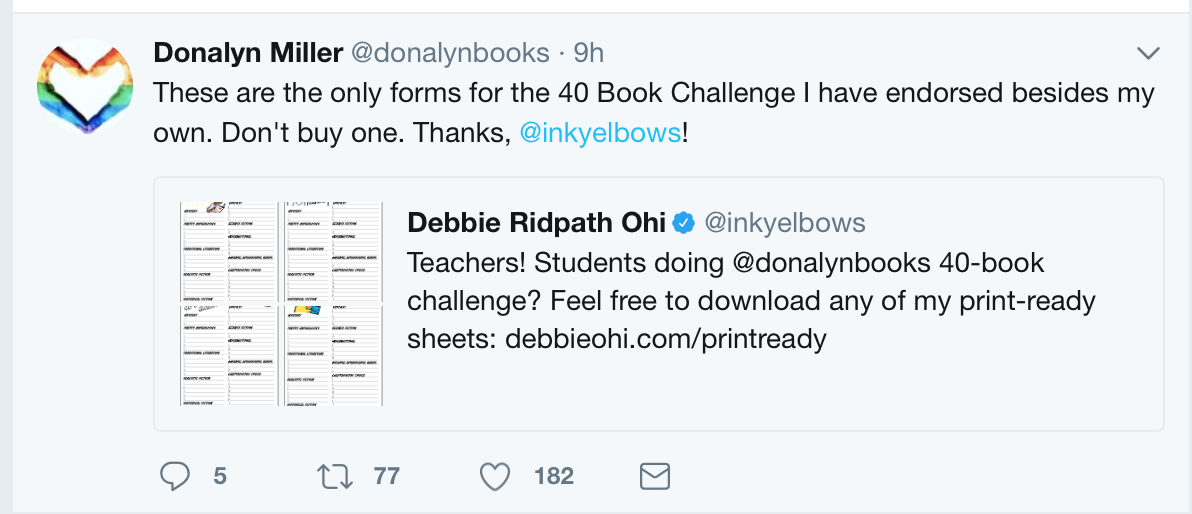
 Festival - a free (!) and frenetic amalgam of music, food, and culture - is worth planning around, which is, exactly what we do.
Festival - a free (!) and frenetic amalgam of music, food, and culture - is worth planning around, which is, exactly what we do. Over the 31 years that the festival has been here, it seems to me it has developed into a better and better version of itself. This year, with stellar weather, not too hot and most definitely not too humid, was one of the best.The music is naturally one of the biggest draws.
Over the 31 years that the festival has been here, it seems to me it has developed into a better and better version of itself. This year, with stellar weather, not too hot and most definitely not too humid, was one of the best.The music is naturally one of the biggest draws.  Where else can you go to sample everything from Armenian to Zydeco? I mean that literally. When we first started coming to the Festival, we would carefully plan out which bands to listen to, and that's not a bad strategy, really. But what we've done in recent times is move from place to place listening to music that is not necessarily in our cultural comfort zone. Doing so has been a great way to get some exposure to music we wouldn't necessarily listen to on Pandora or iTunes. Great stuff. Over the years, we've also come to appreciate Friday nights, the first night of Folk Festival. While the crowds and
Where else can you go to sample everything from Armenian to Zydeco? I mean that literally. When we first started coming to the Festival, we would carefully plan out which bands to listen to, and that's not a bad strategy, really. But what we've done in recent times is move from place to place listening to music that is not necessarily in our cultural comfort zone. Doing so has been a great way to get some exposure to music we wouldn't necessarily listen to on Pandora or iTunes. Great stuff. Over the years, we've also come to appreciate Friday nights, the first night of Folk Festival. While the crowds and  excitement of Saturday and Sunday of Festival weekend are energetic, there is a different kind of vibe to Friday. There is a goodly amount of community pride when the 6:30 parade kicks off. Representing many - not all - of the cultures of Lowell, it causes this Blowellian to realize what a special community we have here in Lowell. The diverse cultures making up our community fabric is a great source of pride for all of us. Long-established cultures that immigrated here during the hey days of the mills or newer immigrant groups establishing homes - all were represented in the kick-off to the weekend.
excitement of Saturday and Sunday of Festival weekend are energetic, there is a different kind of vibe to Friday. There is a goodly amount of community pride when the 6:30 parade kicks off. Representing many - not all - of the cultures of Lowell, it causes this Blowellian to realize what a special community we have here in Lowell. The diverse cultures making up our community fabric is a great source of pride for all of us. Long-established cultures that immigrated here during the hey days of the mills or newer immigrant groups establishing homes - all were represented in the kick-off to the weekend.  But there was a little something more this past Friday: there was a feeling of kind togetherness and consideration. A festival-goer, a stranger to me, insisted I take a cushion as I knelt down on the grass of Boarding House Park to photograph the parade. Random concert goers started up and
But there was a little something more this past Friday: there was a feeling of kind togetherness and consideration. A festival-goer, a stranger to me, insisted I take a cushion as I knelt down on the grass of Boarding House Park to photograph the parade. Random concert goers started up and  carried on conversations, enjoying the music and the collegiality. I think this shift in attitudes must have become contagious. One of the Park Rangers we spoke with on Sunday was delighted to point out his radio had been
carried on conversations, enjoying the music and the collegiality. I think this shift in attitudes must have become contagious. One of the Park Rangers we spoke with on Sunday was delighted to point out his radio had been  very quiet all weekend because, in spite of large crowds, everyone was well-behaved.An event of this size takes lots of organization and many, many dedicated volunteers - from fundraisers to recyclers to people who run the cameras for broadcast. If you were at this year's festival, you may have run into a few of them from the Bucket Brigade.
very quiet all weekend because, in spite of large crowds, everyone was well-behaved.An event of this size takes lots of organization and many, many dedicated volunteers - from fundraisers to recyclers to people who run the cameras for broadcast. If you were at this year's festival, you may have run into a few of them from the Bucket Brigade.  In order to put on a festival of this size, there is a huge financial commitment from community partnerships to donations large and small. You can continue to donate to the
In order to put on a festival of this size, there is a huge financial commitment from community partnerships to donations large and small. You can continue to donate to the 
 Is STEM the only thing? I'm asking for a friend.It occurs to me that in the rush to turn out worker bees for business sectors, the focus in education is more than a little skewed in favor of science, technology, engineering and mathematics. Yes, these are all important studies and part of a well-rounded balanced education. However, I am questioning that the focus on STEM has over-shadowed other content and curricula that, in my biased opinion, should be equally important.Because I see education in terms of an avenue toward a pursuit, observing the march of the bureaucrats toward the next great crisis in education is equally frustrating and alarming. Our educational goal should be to "hook" students into becoming life-long students, to foster curiosity and questioning and the drive to know more.And maybe that pathway toward becoming lifetime learners is through a STEM discipline, and perhaps it is not.As a student, my personal pathway into learning was through something quite different. I was a more-than-adequate reader, not a particularly skilled writer, and a horribly incompetent math student. What fired me up to become more disciplined about learning and more successful as a student, was a love and pursuit of music. The irony of this statement is that, as an adult, music has taken a backseat to the very disciplines that catch all the attention today - technology and mathematics.To me, it is more important to teach students to think critically, to process logically and, yes, even scientifically. Science, math, and technology are important and great ways to get to those problem-solving and thinking skills. But other disciplines can be a means to this end - and toward the goal of fostering and enduring desire to learn - too. And for the student whose interest in learning lies in arts and humanities, exclusion of such pursuits leave them flat.So while our education policy makers direct a refocus on science, technology, engineering, and mathematics, I hope there might also be a similar pursuit of arts and humanities. Because, in my opinion, there is a need to balance educational pursuits across all disciplines.
Is STEM the only thing? I'm asking for a friend.It occurs to me that in the rush to turn out worker bees for business sectors, the focus in education is more than a little skewed in favor of science, technology, engineering and mathematics. Yes, these are all important studies and part of a well-rounded balanced education. However, I am questioning that the focus on STEM has over-shadowed other content and curricula that, in my biased opinion, should be equally important.Because I see education in terms of an avenue toward a pursuit, observing the march of the bureaucrats toward the next great crisis in education is equally frustrating and alarming. Our educational goal should be to "hook" students into becoming life-long students, to foster curiosity and questioning and the drive to know more.And maybe that pathway toward becoming lifetime learners is through a STEM discipline, and perhaps it is not.As a student, my personal pathway into learning was through something quite different. I was a more-than-adequate reader, not a particularly skilled writer, and a horribly incompetent math student. What fired me up to become more disciplined about learning and more successful as a student, was a love and pursuit of music. The irony of this statement is that, as an adult, music has taken a backseat to the very disciplines that catch all the attention today - technology and mathematics.To me, it is more important to teach students to think critically, to process logically and, yes, even scientifically. Science, math, and technology are important and great ways to get to those problem-solving and thinking skills. But other disciplines can be a means to this end - and toward the goal of fostering and enduring desire to learn - too. And for the student whose interest in learning lies in arts and humanities, exclusion of such pursuits leave them flat.So while our education policy makers direct a refocus on science, technology, engineering, and mathematics, I hope there might also be a similar pursuit of arts and humanities. Because, in my opinion, there is a need to balance educational pursuits across all disciplines. About six months ago, Adrien and I came to the realization that, despite 200+ channels offered by our favorite cable provider, we were more often than not finding little entertainment of value on television. Mostly we ended up watching television to "kill time" - not a particularly compelling reason for sitting in front of the tube after dinner. And then, there was the over $200 a month bill.So with that realization, we started to become intrigued with the idea of cutting the cord - getting rid of our cable television access. And yes, I do know boomers are notorious for not quite being on the cutting edge of technology. Yet we persisted.The television we gravitated to really was a short list. Once we started to keep track of what we really wanted to watch on television, it was fairly easy to match up streaming providers (Hulu, Roku, etc.) to our habits. Although we had an older Apple TV, we upgraded so that we could take advantage of DVR capabilities offered by streaming providers like Hulu-live.What we discovered was that we might lose one of the local (Boston) channels (WCVB). We also let go of local cable access coverage of meetings (yea, I was that person), and watch local PBS affiliate, WGBH, via the Internet. By choosing the more costly live-streaming packaged offered by Hulu (Hulu-live) we can still access local sports coverage (Red Sox!). Another advantage is that any changes to account types (i.e., from regular Hulu to Hulu-live) so far do not incur any penalties or change of service charges.The feature we've had to get accustomed to is queuing up programs that we are interested in rather than channel surfing. Our previously acquired Netflix account is easily accessed through an Apple TV app. Using Amazon Prime is naturally a little more difficult, but with a little more effort (Airplay and playing through an iPad) still accessible.We kept the same Internet access speed (200 Mbps), curtailed landline and cable. By doing so, our monthly "entertainment" costs are about $60 a month less - nearly $1,000 savings a year. At this point we are still evaluating whether the "live" feature of Hulu-live is worth the $40/month charge; regular old Hulu (with limited commercials) is $12 a month. If we discover that live TV broadcast is not something we regularly watch, we'll be able to cut our entertainment charges even more.In my opinion, however, the greatest advantage for us is that when we do sit down to watch television, we're doing so for a reason or with a particular show in mind. Reading, conversation, and dinnertimes are a lot calmer. So far, so good.
About six months ago, Adrien and I came to the realization that, despite 200+ channels offered by our favorite cable provider, we were more often than not finding little entertainment of value on television. Mostly we ended up watching television to "kill time" - not a particularly compelling reason for sitting in front of the tube after dinner. And then, there was the over $200 a month bill.So with that realization, we started to become intrigued with the idea of cutting the cord - getting rid of our cable television access. And yes, I do know boomers are notorious for not quite being on the cutting edge of technology. Yet we persisted.The television we gravitated to really was a short list. Once we started to keep track of what we really wanted to watch on television, it was fairly easy to match up streaming providers (Hulu, Roku, etc.) to our habits. Although we had an older Apple TV, we upgraded so that we could take advantage of DVR capabilities offered by streaming providers like Hulu-live.What we discovered was that we might lose one of the local (Boston) channels (WCVB). We also let go of local cable access coverage of meetings (yea, I was that person), and watch local PBS affiliate, WGBH, via the Internet. By choosing the more costly live-streaming packaged offered by Hulu (Hulu-live) we can still access local sports coverage (Red Sox!). Another advantage is that any changes to account types (i.e., from regular Hulu to Hulu-live) so far do not incur any penalties or change of service charges.The feature we've had to get accustomed to is queuing up programs that we are interested in rather than channel surfing. Our previously acquired Netflix account is easily accessed through an Apple TV app. Using Amazon Prime is naturally a little more difficult, but with a little more effort (Airplay and playing through an iPad) still accessible.We kept the same Internet access speed (200 Mbps), curtailed landline and cable. By doing so, our monthly "entertainment" costs are about $60 a month less - nearly $1,000 savings a year. At this point we are still evaluating whether the "live" feature of Hulu-live is worth the $40/month charge; regular old Hulu (with limited commercials) is $12 a month. If we discover that live TV broadcast is not something we regularly watch, we'll be able to cut our entertainment charges even more.In my opinion, however, the greatest advantage for us is that when we do sit down to watch television, we're doing so for a reason or with a particular show in mind. Reading, conversation, and dinnertimes are a lot calmer. So far, so good.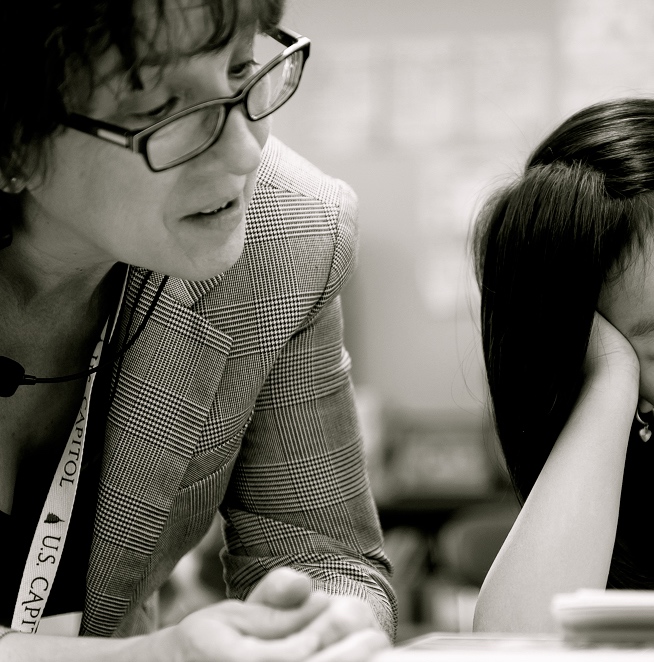 One of the texts I've reviewed for a course I'm leading this summer is Jan Burkins and Kim Yaris'
One of the texts I've reviewed for a course I'm leading this summer is Jan Burkins and Kim Yaris'  Words have lots of power.How many times have you, as learners, encountered can't statements? Can't as in "I can't do math" or "I can't draw" or "I can't" just about anything. I think it was my grandmother who used to say "can't never did anything". And she was - and still is - right.I was thinking about the power of "can't" during yoga practice this week. It used to happen that when I was in a public class and a balance pose as simple as tree pose was called, my whole body would break into an anxiety sweat. I can't balance on one leg, I would tell myself. I'm too clumsy, too old.Then, one day, I switched the narrative to add in the word "yet". I can't do this... yet. Through those 3 letters, I could feel my attitude changing. "I may fall out of tree pose today, but some day I will nail it." In fact in time, that's exactly what happened.When I was actively teaching, students often would say "I can't" to everything from a writing topic to division. Adding the word yet to their statements - I can't do this yet - often made a difference for them too.Three letters. Those three letters can make all the difference for every student.
Words have lots of power.How many times have you, as learners, encountered can't statements? Can't as in "I can't do math" or "I can't draw" or "I can't" just about anything. I think it was my grandmother who used to say "can't never did anything". And she was - and still is - right.I was thinking about the power of "can't" during yoga practice this week. It used to happen that when I was in a public class and a balance pose as simple as tree pose was called, my whole body would break into an anxiety sweat. I can't balance on one leg, I would tell myself. I'm too clumsy, too old.Then, one day, I switched the narrative to add in the word "yet". I can't do this... yet. Through those 3 letters, I could feel my attitude changing. "I may fall out of tree pose today, but some day I will nail it." In fact in time, that's exactly what happened.When I was actively teaching, students often would say "I can't" to everything from a writing topic to division. Adding the word yet to their statements - I can't do this yet - often made a difference for them too.Three letters. Those three letters can make all the difference for every student. This past Tuesday, June 6, 2017, Secretary Betsy DeVos gave testimony in front of the Senate Appropriations Subcommittee on Labor, Health and Human Services, Education and Related Agencies. An overview of Secretary DeVos' testimony can be found on mlive
This past Tuesday, June 6, 2017, Secretary Betsy DeVos gave testimony in front of the Senate Appropriations Subcommittee on Labor, Health and Human Services, Education and Related Agencies. An overview of Secretary DeVos' testimony can be found on mlive 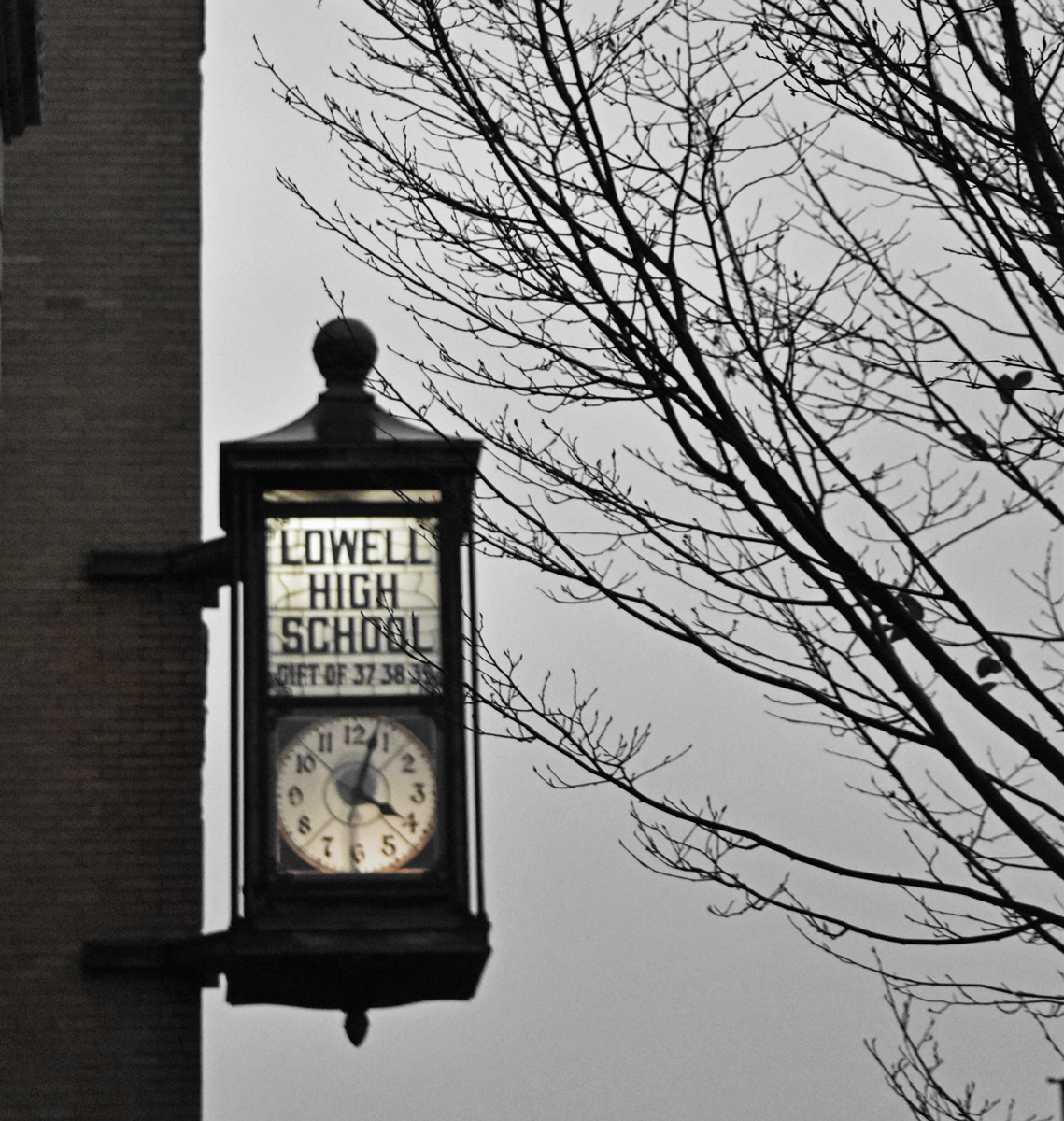 All Members present for both meetings.
All Members present for both meetings.
 Tuesday evening, I spoke before the City Council to encourage that body to meet with City of Lowell school administration before approving the budget that was before them. You read that correctly, I was advocating that the Council
Tuesday evening, I spoke before the City Council to encourage that body to meet with City of Lowell school administration before approving the budget that was before them. You read that correctly, I was advocating that the Council  It's budget time in Lowell and the predictions look a bit grim. I won't second guess (most) of the reasoning behind proposed budget amounts, but I am dismayed that the belt tightening has been mind numbing. As a former educator in Lowell, even without children (or grandchildren) in the City Schools, I feel compelled to speak up. Those are "my" kids who are moving along through a terrific urban district and they deserve as many opportunities as we can provide. Here's a letter that I sent to our School Committee Members this morning. I plan to attend tonight's Budget Hearing (Butler School, 6:30 pm), LISTEN and then advocate for them as best I can. I hope many of you will do this as well. Let's work together to ensure that Lowell Public Schools meet our students' needs.
It's budget time in Lowell and the predictions look a bit grim. I won't second guess (most) of the reasoning behind proposed budget amounts, but I am dismayed that the belt tightening has been mind numbing. As a former educator in Lowell, even without children (or grandchildren) in the City Schools, I feel compelled to speak up. Those are "my" kids who are moving along through a terrific urban district and they deserve as many opportunities as we can provide. Here's a letter that I sent to our School Committee Members this morning. I plan to attend tonight's Budget Hearing (Butler School, 6:30 pm), LISTEN and then advocate for them as best I can. I hope many of you will do this as well. Let's work together to ensure that Lowell Public Schools meet our students' needs.
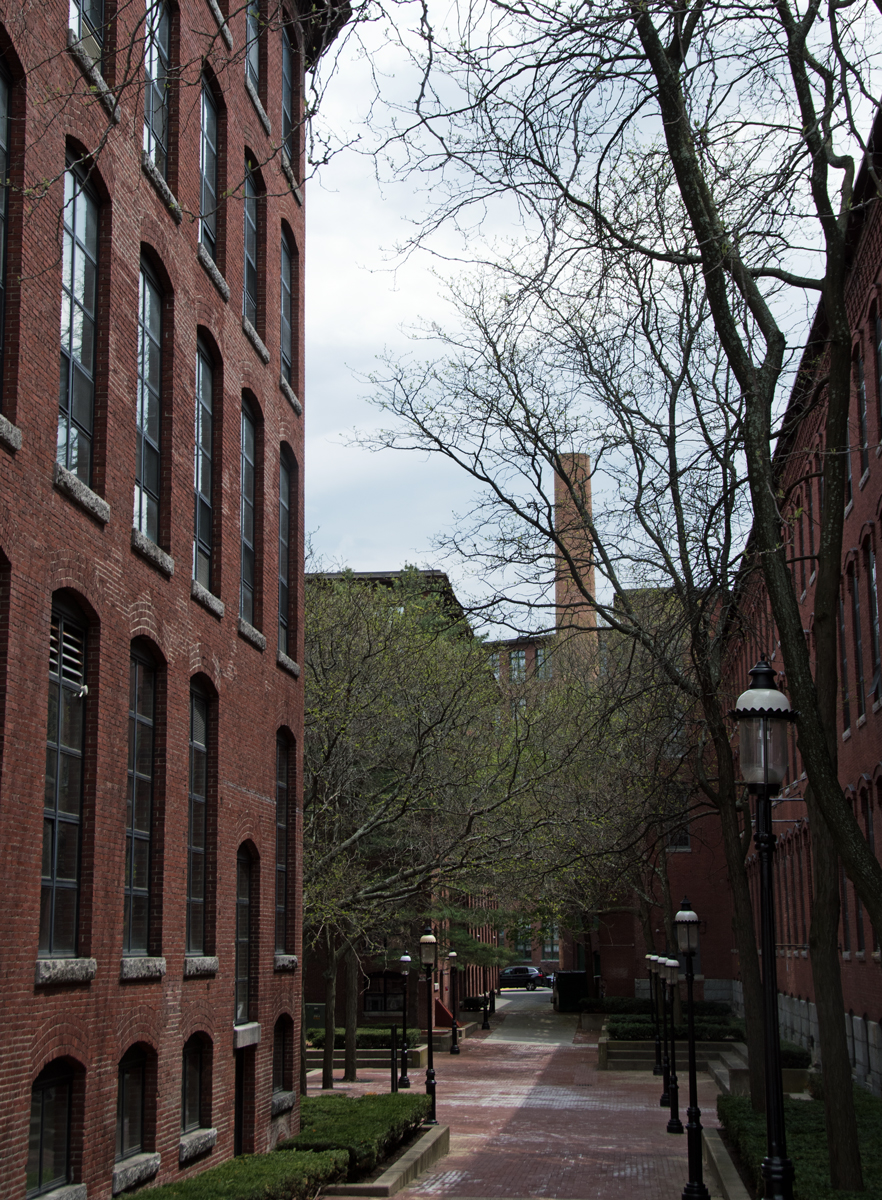 At last night's meeting, the School Committee met for the first time since the beginning of April. This was the first time the public got a glimpse at the proposed budget (see link within the Meeting Packet
At last night's meeting, the School Committee met for the first time since the beginning of April. This was the first time the public got a glimpse at the proposed budget (see link within the Meeting Packet  Educators, if you received a free and unsolicited book in the mail, would you read it? That's what a conservative "climate realist" group by the name of Heartland Institute wants you to do. In fact, it would be really swell if teachers would do a little more than just read their free book(s). If you would also start teaching some of their conceptions and beliefs, that would be great.Here's an introduction to this Heartland Institute courtesy of
Educators, if you received a free and unsolicited book in the mail, would you read it? That's what a conservative "climate realist" group by the name of Heartland Institute wants you to do. In fact, it would be really swell if teachers would do a little more than just read their free book(s). If you would also start teaching some of their conceptions and beliefs, that would be great.Here's an introduction to this Heartland Institute courtesy of